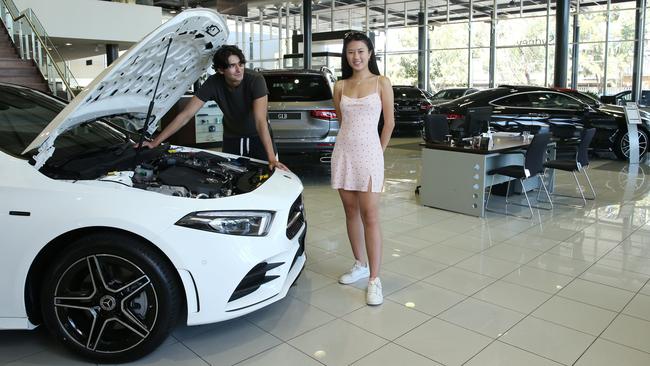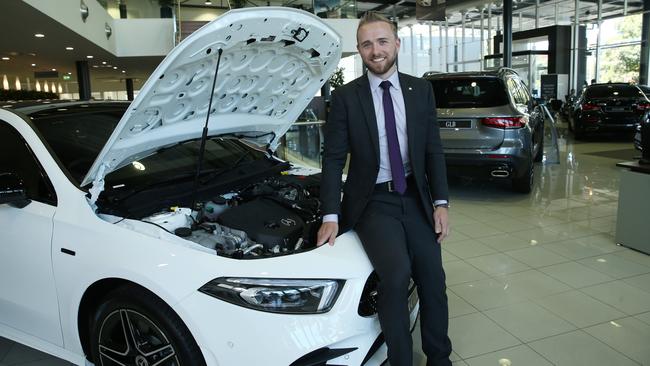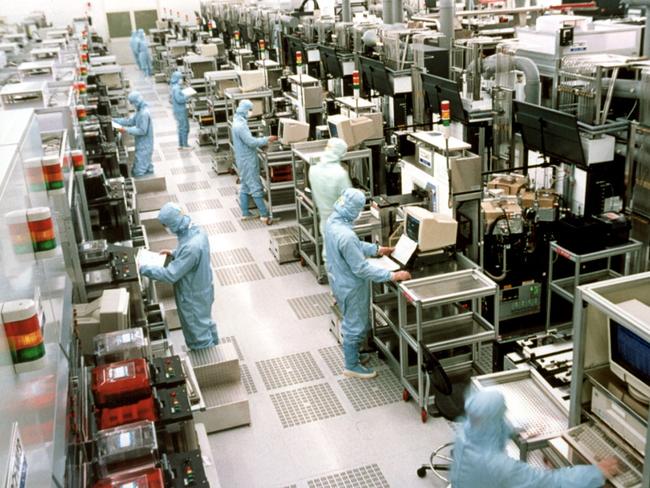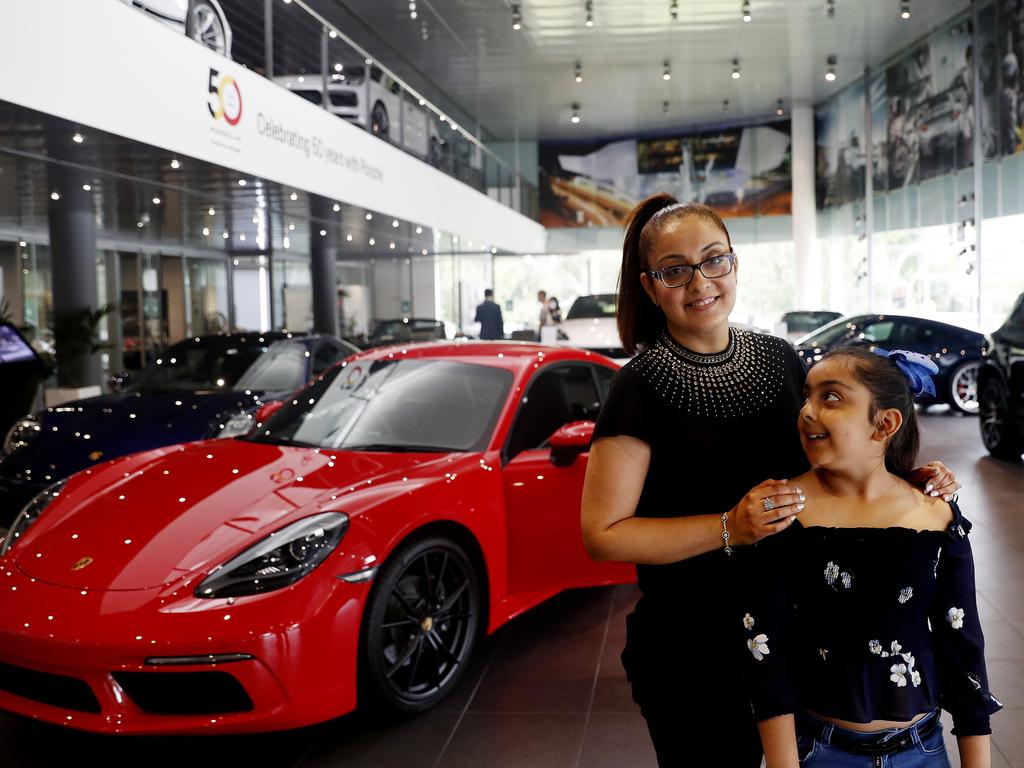Global demand for chips puts luxury car suppliers last in queue
As consumer confidence returns, those in the market for a luxury car are finding there has indeed been a better time to buy one.

Mercedes-Benz, Audi and Porsche customers in Australia face waits of up to several months to drive their new vehicle off the showroom floor as a global microchip shortage leaves manufacturers unable to meet demand.
Despite luxury cars maintaining strong sales throughout the pandemic, pent-up demand and the microchip (or semiconductor) shortage has caused long delays in production and supply chains around the world.
Mercedes-Benz says several models are affected, including its popular compact cars.
“There is currently a worldwide supply shortage of certain semiconductor components used in the production of Mercedes-Benz vehicles,” a spokesman said.
“The supply shortage is related to the COVID crisis, and Mercedes-Benz Australia cannot exclude possible delivery delays for certain models as a result.
“The impacted vehicles include our range of compact cars (A-Class, B-Class, CLA and GLA) and GLC models.”

A spokesman for Porsche Australia said demand for new cars had exceeded supply, but added that was “not uncommon”.
Several premium car dealerships in Sydney — including those for Mercedes-Benz, Audi, Porsche and Volkswagen — confirmed supply was an issue, with one dealer saying they had experienced delays since October.
“If someone ordered a car that wasn’t available and we had to build it, it would go into production in April and be scheduled for delivery in June,” said another.
Audi sales manager Thomas Low said the company was also experiencing trouble with supply.
“We’ve definitely seen an increase in potential buyers and a bit of constraints in terms of supply,” Mr Low said.
Microchips have become vital components in modern cars, controlling everything from engine management to braking systems and electric windows. New cars can use between 50 and 200 microchips, while increasingly popular hybrid and electric vehicles can require more than 3000, according to the Federal Chamber of Automotive Industries.
“Just-in-time logistics, plant shutdowns during mandated lockdowns and a global increase in demand for new cars have compounded the shortages effect,” an FCAI spokesman said.
One of the main reasons for the scarcity of microchips is the demand from the consumer electronics industry. Lockdowns sparked a surge in demand for home entertainment products such as televisions, games consoles and personal fitness devices.
“The recovery of the automotive sector is competing with all of the devices we’ve used to keep ourselves entertained during COVID-19,” Volkswagen Australia managing director Michael Bartsch told The Australian.
Volkswagen expects delays to last until at least the end of March.
Mr Bartsch said manufacturers had expected a downturn in the early days of the pandemic, but car sales had recovered much more quickly than expected — leaving parts manufacturers unable to meet demand.

Car Sales editor-in-chief Mike Sinclair said the microchip shortage was just one of several problems affecting the industry.
“In Mexico, a number of plants are being slowed because of reduced energy availability due to the natural gas shortage. In Southeast Asia and Japan, there have been semiconductor shortages and plant closures due to capacity restraints,” he said.
The shortage has affected some of the world’s leading automakers, including Volkswagen, Ford, Subaru, Toyota, Nissan and Fiat Chrysler. General Motors has had to shut manufacturing plants in Canada, Mexico and the US.








To join the conversation, please log in. Don't have an account? Register
Join the conversation, you are commenting as Logout